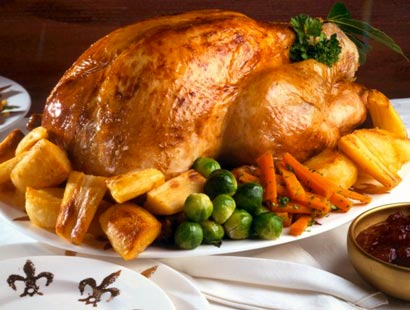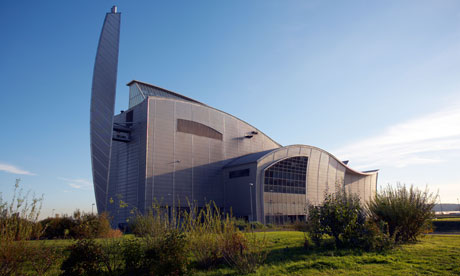"I agree, the last video you posted is very insightful, reminding us of the priorities. I like the idea of using pee for P and hope it materilizes, as this will provide us with a renewable source of P, alleviating one of the numerous global problems. However, your last three posts also made me realize something more gloomy, which is that in reality people choose to lead an unsustainable lifestyle, such as choosing to consume meat, and shift the blame for problems such as the global food shortages onto factors like biofuels, for example, which is what I am writing about in my blog.
It takes 3-4 times more P to support a meat-based diet and also more land to cultivate meat, as land is needed to produce cattle feed too. This means that meat production uses more natural resources, indirectly resulting in the food shortages. If we evaluated what our priorities are and all took responsibility for our own actions, would it not make more sense to lead a less meat-intensive diet, as this would free up the natural resources, such as land and P?
I find this issue very relevant to biofuels, as decreasing our meat consumption and food waste would likely result in less food shortages and free up more land for activities such as sustainable biofuel cultivation, which should result in GHG emissions savings and greater energy security. Would this not be more useful than leaving all as it is at present i.e. blaming so much on biofuels, for example, as the Gallagher Report (2008) seems to do, preventing the cultivation of biofuels, carrying on with our meat-intensive diet and high P consumption to then realize in the future that food shortages are still increasing as more and more people consume more, P and fossil fuels are running out and we are not prepared for that, and our GHG emissions have not decreased.
While I am also a hypocrite promoting a vegetarian diet here, my point is that I feel that too much emphasis is placed onto blaming industrial activities for the global problems and very little onto us, the consumers, which is not always useful. Therefore I very much agree with you that we should take greater action as citizens (I think this is what you were trying to say, if I understood correctly), even though technological fixes may help."
It takes 3-4 times more P to support a meat-based diet and also more land to cultivate meat, as land is needed to produce cattle feed too. This means that meat production uses more natural resources, indirectly resulting in the food shortages. If we evaluated what our priorities are and all took responsibility for our own actions, would it not make more sense to lead a less meat-intensive diet, as this would free up the natural resources, such as land and P?
I find this issue very relevant to biofuels, as decreasing our meat consumption and food waste would likely result in less food shortages and free up more land for activities such as sustainable biofuel cultivation, which should result in GHG emissions savings and greater energy security. Would this not be more useful than leaving all as it is at present i.e. blaming so much on biofuels, for example, as the Gallagher Report (2008) seems to do, preventing the cultivation of biofuels, carrying on with our meat-intensive diet and high P consumption to then realize in the future that food shortages are still increasing as more and more people consume more, P and fossil fuels are running out and we are not prepared for that, and our GHG emissions have not decreased.
While I am also a hypocrite promoting a vegetarian diet here, my point is that I feel that too much emphasis is placed onto blaming industrial activities for the global problems and very little onto us, the consumers, which is not always useful. Therefore I very much agree with you that we should take greater action as citizens (I think this is what you were trying to say, if I understood correctly), even though technological fixes may help."
My Reply:
Thanks for this EPIC post!
You are right; if we did eat less meat, then it would be
significantly justifiable to produce more biofuel. However like every other
resource or commodity it falls down to the distribution of the meat that is important. If the cost of meat actually took ecosystem service costs into
consideration as well as environmental valuations then the cost would increase
and there are potentially two outcomes: decrease in demand, reducing
consumption; increase in 'innovative' ways at maximising profits to reduce cost
production and increase consumption through economies of scale.
The first way would disproportionately affect those who have
the lowest incomes as cheap meat is sometime the only source of protein in a
diet as most substitutes cost a lot more. The second would lead to further
environmental and ecological degradation as intensive farming would become more
intensive at the cost of land quality, animal welfare and pollution.
The second point is relevant due to the EU 'wide' ban onBattery hen egg farming. A reported 80 million hens are being 'freed' (some are
going to be slaughtered) due to new legislation preventing the use of the
current intensive hen cages to produce eggs; a new 'enriched' cage (37% bigger)
has to be used.
This results in a just bigger than a sheet of A4 paper space
per chicken in a cage. Not that nice! (some info on ending factory farming here).
If we all became concerned consumers and thought about our
individual actions then we would achieve a lot more than holistic legislation
which is passing the buck of responsibility to people we pay and elect to act
for us. I agree with you. Consumption is the problem; and as consumers, we are
the ones who have to change OUR habits.
I hope this reply isn’t too bad! I like posting long posts
too! :D





